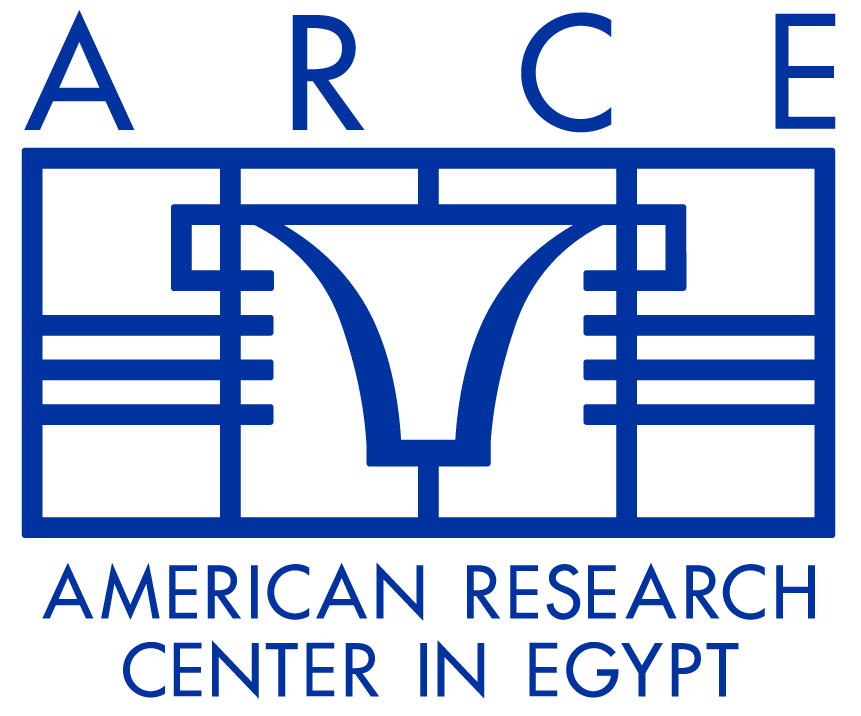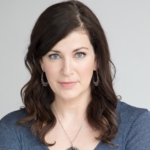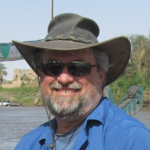
20
JanARCE National: Information Literacy in Egyptology Workshop
Registration is Required
Presented by: Dr. Mariam Ayad, Dr. Kara Cooney, Dr. Stuart Tyson Smith, and Dr. Julia Troche
- 2:00 PM ETNational
- Zoom
- + Add to Calendar
Lecture Information
This workshop aims to address the prevalence of conspiracy theories and popular arguments lacking evidence in Egyptian and Nubian archaeology and Egyptology more broadly, also known as “pseudoarchaeology” or “pseudoscience”. Whether you are a student of Egyptology or archaeology, educator, museum professional, or have a general interest in the field, this workshop is for you. Our panelists will speak on the role of the academy, the positioning of Egypt and Nubian as African civilizations, and equip attendees with some tools helpful in identifying unfounded conclusions in popular media and scholarship.
Speaker Biographies
 Dr. Mariam F. Ayad is an associate professor of Egyptology at the American University in Cairo. In 2020–21, she was a visiting associate professor of women’s studies and Near Eastern religions and a research associate of the Women’s Studies in Religion Program at Harvard Divinity School. Ayad studied Egyptology at AUC (BA), the University of Toronto (MA), and Brown University (PhD) and was a tenured associate professor of art history and Egyptology at the University of Memphis, Tennessee, before returning to Egypt in 2011. She is the author of God’s Wife, God’s Servant: The God’s Wife of Amun (c. 740–525 bc) (Routledge, 2009) and the editor of Women in Ancient Egypt: Revisiting Power, Agency, and Autonomy (AUC Press, 2022), and three volumes on Coptic culture, including most recently Coptic Culture and Community: Daily Lives, Changing Times (AUC Press 2024, available at: https://aucpress.com/9781649031822/coptic-culture-and-community/.
Dr. Mariam F. Ayad is an associate professor of Egyptology at the American University in Cairo. In 2020–21, she was a visiting associate professor of women’s studies and Near Eastern religions and a research associate of the Women’s Studies in Religion Program at Harvard Divinity School. Ayad studied Egyptology at AUC (BA), the University of Toronto (MA), and Brown University (PhD) and was a tenured associate professor of art history and Egyptology at the University of Memphis, Tennessee, before returning to Egypt in 2011. She is the author of God’s Wife, God’s Servant: The God’s Wife of Amun (c. 740–525 bc) (Routledge, 2009) and the editor of Women in Ancient Egypt: Revisiting Power, Agency, and Autonomy (AUC Press, 2022), and three volumes on Coptic culture, including most recently Coptic Culture and Community: Daily Lives, Changing Times (AUC Press 2024, available at: https://aucpress.com/9781649031822/coptic-culture-and-community/.
 Dr. Kara Cooney is a professor of Egyptology at UCLA and Chair of the Department of Near Eastern Languages and Cultures. Specializing in social history, gender studies, and economies in the ancient world, she received her Ph.D. in Egyptology from Johns Hopkins University. Her popular books include The Woman Who Would Be King: Hatshepsut’s Rise to Power in Ancient Egypt, When Women Ruled the World: Six Queens of Egypt, and The Good Kings: Absolute Power in Ancient Egypt and the Modern World. Her latest books include Ancient Egyptian Society: Challenging Assumptions, Exploring Approaches (Routledge, 2023) and Recycling for Death: Coffin Reuse in Ancient Egypt and the Theban Royal Caches (The American University in Cairo Press, forthcoming 2024).
Dr. Kara Cooney is a professor of Egyptology at UCLA and Chair of the Department of Near Eastern Languages and Cultures. Specializing in social history, gender studies, and economies in the ancient world, she received her Ph.D. in Egyptology from Johns Hopkins University. Her popular books include The Woman Who Would Be King: Hatshepsut’s Rise to Power in Ancient Egypt, When Women Ruled the World: Six Queens of Egypt, and The Good Kings: Absolute Power in Ancient Egypt and the Modern World. Her latest books include Ancient Egyptian Society: Challenging Assumptions, Exploring Approaches (Routledge, 2023) and Recycling for Death: Coffin Reuse in Ancient Egypt and the Theban Royal Caches (The American University in Cairo Press, forthcoming 2024).
 Dr. Stuart Tyson Smith is Professor of Anthropology at the University of California, Santa Barbara, and holds a Ph.D. in Archaeology from the University of California, Los Angeles. He has published on the dynamics of Egyptian imperialism and royal ideology, the use of sealings in administration, the origins of the Napatan state, death and burial and the ethnic, social, and economic dynamics of interaction between ancient Egypt and Nubia. He is also an active field archaeologist, having participated in and led archeological expeditions to Egypt and since 1997 to Sudanese Nubia, where he currently co-directs projects focusing on the New Kingdom and Napatan Period cemetery and fortress settlement of Tombos and a nearby Kerma cemetery. Recently, he edited Origins and Afterlives of Kush, a special issue of the Journal of Ancient Egyptian Interconnections (2022).
Dr. Stuart Tyson Smith is Professor of Anthropology at the University of California, Santa Barbara, and holds a Ph.D. in Archaeology from the University of California, Los Angeles. He has published on the dynamics of Egyptian imperialism and royal ideology, the use of sealings in administration, the origins of the Napatan state, death and burial and the ethnic, social, and economic dynamics of interaction between ancient Egypt and Nubia. He is also an active field archaeologist, having participated in and led archeological expeditions to Egypt and since 1997 to Sudanese Nubia, where he currently co-directs projects focusing on the New Kingdom and Napatan Period cemetery and fortress settlement of Tombos and a nearby Kerma cemetery. Recently, he edited Origins and Afterlives of Kush, a special issue of the Journal of Ancient Egyptian Interconnections (2022).

Dr. Julia Troche is Associate Professor of Ancient History at Missouri State University (MOState) and holds a PhD in Egyptology from Brown University. She was awarded MOState’s 2022 Foundation Award for Teaching Excellence as well as the 2022 Missouri Governor’s Award for Excellence in Education. She serves as co-founder and President of the American Research Center in Egypt (ARCE), Missouri Chapter, and sits on ARCE’s national Board of Governors. Julia also is the incoming co-chair of the DEI committee for the American Schools of Overseas Research (ASOR). Her research looks at ancient Egyptian history and religion as well as its reception throughout history.